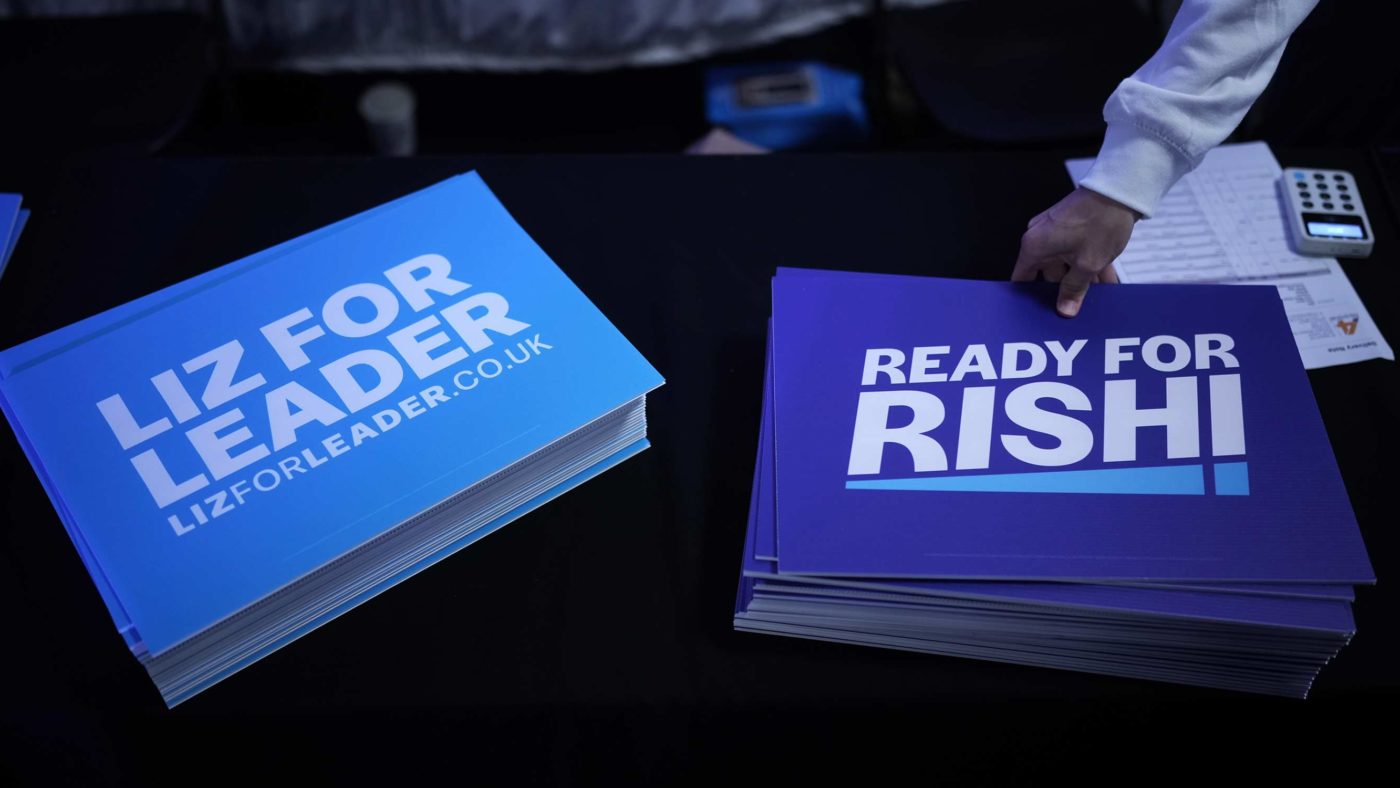Roll up, roll up for the great Tory leadership policy bonanza!
In the last few days alone Rishi Sunak has declared war on ‘woke nonsense’, promised to revitalise Britain’s high streets, cut VAT on energy bills, introduce a ‘food security target and charge people £10 for missing a GP appointment. Liz Truss, meanwhile, has today unveiled six new policies – and that’s just her plan for education. Both candidates have also promised to create new criminal offences: Truss wants to ban street harassment, while Sunak has taken aim at ‘downblousing’ (taking unsolicited photos down a woman’s top).
On the one hand, it’s good to see the contest has moved on from a rather repetitive debate about tax cuts and inflation. On the other, there’s been such a profusion of policies, it’s hard to make out a coherent approach from either candidate.
Sunak’s broadside against wokery and ‘leftwing agitators’ feels like a particularly transparent attempt to court the Tory base on an issue where the former Chancellor has very little form. And there’s a broader question about consistency – not just whether he’s changed his view re: VAT cuts on energy bills, but why he’s in favour of offshore wind but wants to ban onshore wind; or how he squares an interest in economic growth with not building on an inch of the green belt (more on which here).
What’s odd is that when Sunak entered the final two he had a compelling pitch: to put the Government on an emergency footing and deal with ‘five emergencies facing our country’. You would think those five emergency plans would be front-and-centre of his campaign, but at the moment – with ballots about to go out to members – it’s not even clear what the five plans actually are (and neither his Twitter account nor campaign website leave me any the wiser),
Truss’ latest pledge to be the ‘education prime minister’, meanwhile, does at least reflect her longstanding and keen interest in schools policy. However, her six points are a slightly random assortment, covering everything from childcare costs to free schools to Oxbridge admissions, where she wants to offer every candidate with three A*s an interview (it’s not clear how that would work, given that most candidates apply before getting their results).
The broader question here is: does the next prime minister actually need a big raft of new policies? As Rachel Wolf – who co-authored the 2019 manifesto – noted in a recent column, the reason the Tories are tanking in the polls isn’t just Paterson, Pincher and parties, but the fact they haven’t done enough of what they promised. Covid and Ukraine are substantial mitigating factors here, of course, but the public – especially those who voted Tory for the first time three years ago – are entitled to expect a return on the faith they put in the Government.
Nor has Boris Johnson helped by loading ever more commitments on to an already hugely demanding domestic agenda. The Queen’s Speech this May, for instance, contained no fewer than 38 bills or draft bills.
With that in mind, there’s a strong case that what both candidates should be doing is not coming out with ever more new policies, but making clear which part of Johnson’s sprawling agenda they will prioritise, and how they will use the next two years to deliver on the many, many commitments the Government has already made.
Click here to subscribe to our daily briefing – the best pieces from CapX and across the web.
CapX depends on the generosity of its readers. If you value what we do, please consider making a donation.


